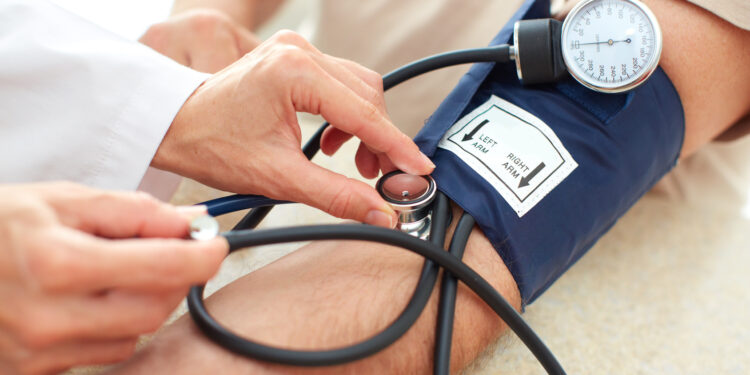A study, conducted in 2015, found that there is a positive association between anxiety and different symptoms of high blood pressure. The following study was conducted by the five authors; there was a need to conduct that study because the results were inconsistent regarding the relationship between anxiety and hypertension. In addition, to decrease the risks of hypertension, it is essential to go for a blood sugar test, and you also need to visit websites that provide information on health issues on a regular basis.
Background of the Study
Several epidemiological (a branch of medicine that focuses on the control of diseases) studies were indicating a relationship between high blood pressure and anxiety. But medical practitioners were unable to draw any conclusion because there was no consistency between the results. The five authors of the following conducted a study that would draw a clear association between these diseases. Therefore, these authors decided to review the current indication from several prospective and cross-sectional studies.
Data Collection Method
The researchers searched seven common data basis on which articles about anxiety and hypertension were published up to November 2014. Only those studies were included that were prospective and cross-sectional and reported a relationship in adults between these two diseases. Data on adjusted or hazard ratios, the prevalence, etc., were calculated by the five authors. In addition, these authors also extracted ninety-five percent of confidence intervals.
Odds ratios for different pools were calculated by using random-effects models, and these ratios were calculated or measured separately for prospective studies and cross-sectional studies. Different tests were applied to assess heterogeneity. In addition, to get an estimation of publication bias, two tests were also applied, and these tests were modified linear regression (tests for analyzing the portion) and funnel plot test.
Results
The results, according to the authors, concluded that there is a relationship between anxiety and increased chances of high blood pressure. In addition, these results also supported the initial uncovering of anxiety in patients with high blood pressure.
Additionally, we need to know in detail about anxiety and hypertension.
Anxiety
Anxiety, also known as GAD, is a disease in which you are constantly worried and experience nervousness, and even tension. If you experience worrying over a period of time and don’t seek any medical help, this can make your life difficult, and you wouldn’t be able to perform your daily activities.
However, it is quite normal to experience a little bit of tension or stress for a short period of time. But there is an extension in tension and stress or there is an inability in performing daily activities, there would be decreased chances for you to relax, and this would lead to several symptoms of anxiety.
Anxiety Types
Negative thoughts or constant nervousness are the most common symptoms of GAD. Other symptoms can be related to emotional or behavioral cognition. In addition, emotional symptoms can be:
- You are experiencing worrying daily for six months
- Negative thoughts that are persistent
- There is a disruption in performing daily life activities
- Excessive worrying
- You are troubled due to extreme worry
- Several uncertain conditions
However, behavioral symptoms can be different, and these symptoms are:
- You are unable to relax
- Inability to focus on something
- Difficulty staying focused over a period of time
- Feelings of overwhelming
- Staying away from several situations that may cause or trigger several symptoms of anxiety
Risk Factors
Anxiety, as everyone knows, is not a contagious disease. However, some risks factors can increase the chances of anxiety for anyone; and these risks factors are:
- Genetic Problems: there are chances that you will experience the symptoms of anxiety if your father or mother is experiencing anxiety because there is a problem in your genes
- Substance Abuse: if you are abused by different substances from your childhood, there are chances that you will experience anxiety
- Brain Chemistry: Brain chemistry is very important to deal with anxiety. If your brain is not able to deal with emotional situations or control situations, then the chances of anxiety are high
Here is also some detail about hypertension:
High Blood Pressure
High blood pressure, one of the most common diseases around the world and also known as hypertension, is a silent killer, and almost affects around 18% of people. Some common symptoms associated with hypertension are:
- Inability to take a breath
- Nosebleeding
- Blurry vision
- Dizziness
- Nausea
Usually, these symptoms are not always associated with high blood pressure. However, if someone is experiencing these symptoms on a regular basis then he/she needs to contact his/her medical specialist because these symptoms can be associated with hypertension.
In addition, newborn babies are also prone to high blood pressure, and the risks of hypertension increase if newborns are experiencing kidney problems; however, some symptoms can be:
- Mild to moderate irritability
- Seizures
- Respiratory problems
- Inactivity
However, these symptoms can vary from baby to baby.
Conclusion
You take precautions to get rid of anxiety because it can increase the risks of hypertension and vice versa. However, if your symptoms don’t disappear after some days, you have to pay a visit to a medical specialist.


